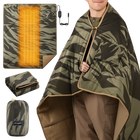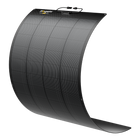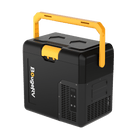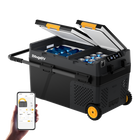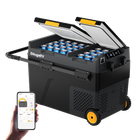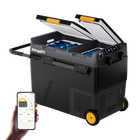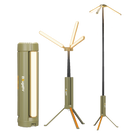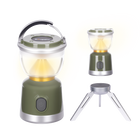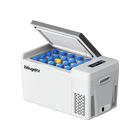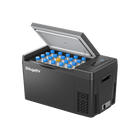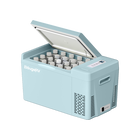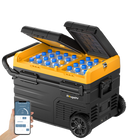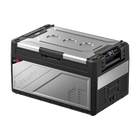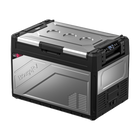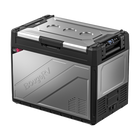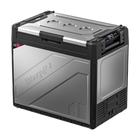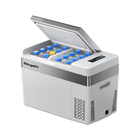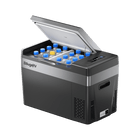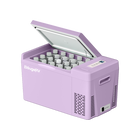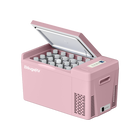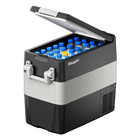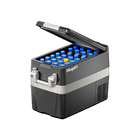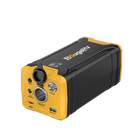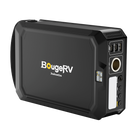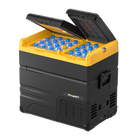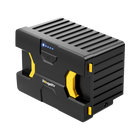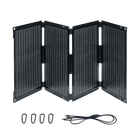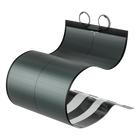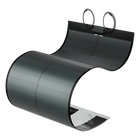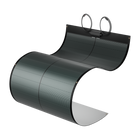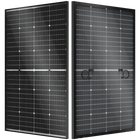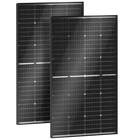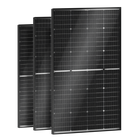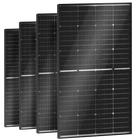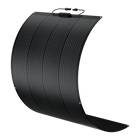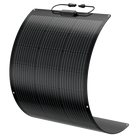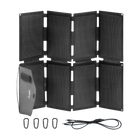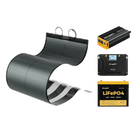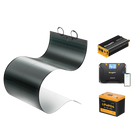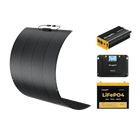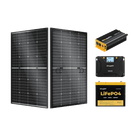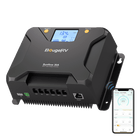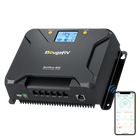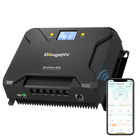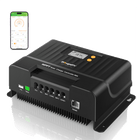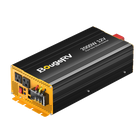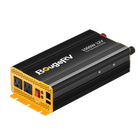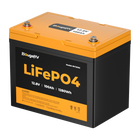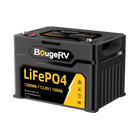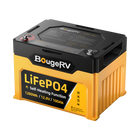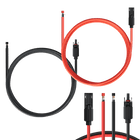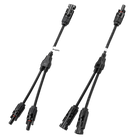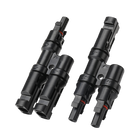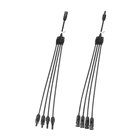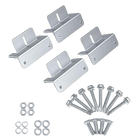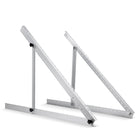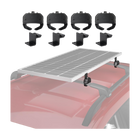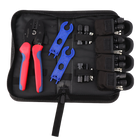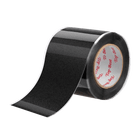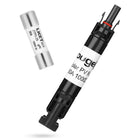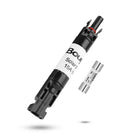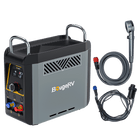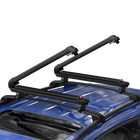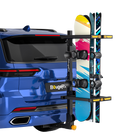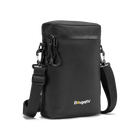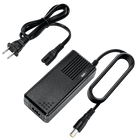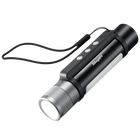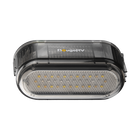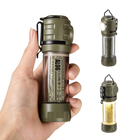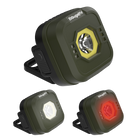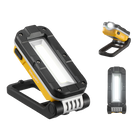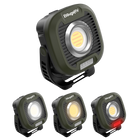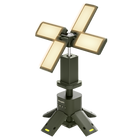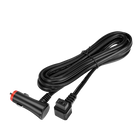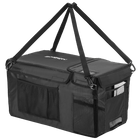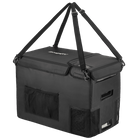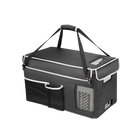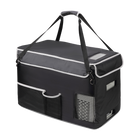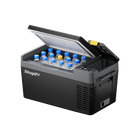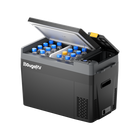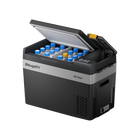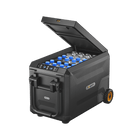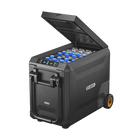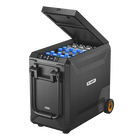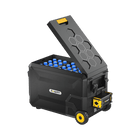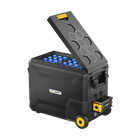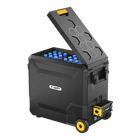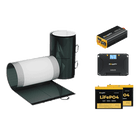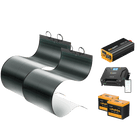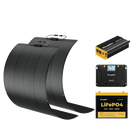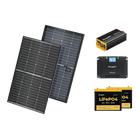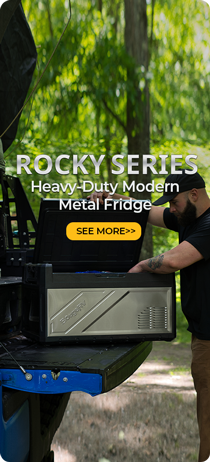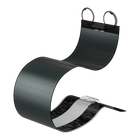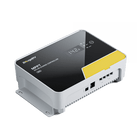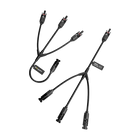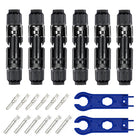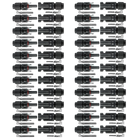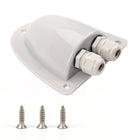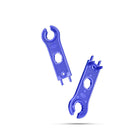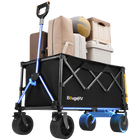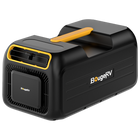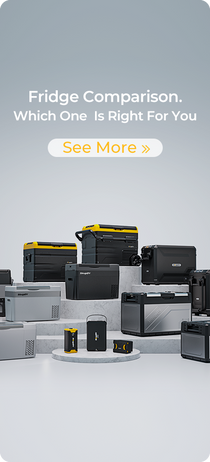Inverter vs. Converter: What’s the Difference, Which Do You Need for Your RV, and More


If you're an RV owner or enthusiast, you may have heard of inverters and converters. But what are they, what do they do? What’s the difference between a converter and an inverter, and which one do you need for your RV?
In this blog post, we'll answer these questions and more, so you can make an informed decision about your RV's power system.
What Is an Inverter vs. Converter?
An inverter and a converter are both devices that change the form of electrical power. However, they do it in opposite ways.
An inverter converts direct current (DC) power into alternating current (AC) power, while a converter does the reverse, converting AC power into DC power.
What Is an Inverter?

An inverter is a device that converts direct current (DC) to alternating current (AC). It works by converting the DC power from batteries or solar panels into AC power, which is used by most household appliances and electronics.
When you don't have access to shore power or a generator, an inverter allows you to watch TV, charge your phone and laptop, run a fan or air conditioner, and power a microwave while boondocking or camping off-grid.
Inverters have two levels of power rating—Continuous Rating and Surge Rating—which are measured in watts (W) or kilowatts (kW). The Continuous Rating indicates the inverter’s capacity and the amount of power it can handle indefinitely. If an inverter is rated at a certain number of watts, this refers to its Continuous Rating. For example, BougeRV's 2000W inverter has a Continuous Rating of 2000W, meaning it can manage power needs up to 2000W.
Inverters can produce pure sine wave, modified sine wave, or square sine wave AC power output. If you’re searching for an inverter for your RV, consider BougeRV’s 2000W pure sine wave inverters, which are compatible with various RV appliances and handle your appliances quite well!
What is a Converter?
A converter is an electrical device that can change electrical energy from one form to another. It can convert alternating current (AC) to direct current (DC) or vice versa, depending on its design. When connected to an external power source, a converter can charge batteries and power DC devices.
It's important to note that a converter cannot be used as an inverter unless it has a built-in inverter function. Using a converter as an inverter without the proper equipment can potentially damage your appliances and electronic devices, especially when the batteries are low.
However, some converters are dual-purpose devices that can function as both a converter and an inverter. These devices are clearly labeled and usually have outlets for 120-volt alternating current (Vac). Besides, DC-to-AC converters, step-down DC-DC converters, and rotary converters can also serve as inverters.
What Are the Types of Inverters?
Knowing the different types of inverters helps in choosing the right one for specific applications, whether it's powering household appliances or running electronic devices in an RV.
Based on the input source, there are two types of inverters—Voltage Source Inverters (VSI) and Current Source Inverters (CSI). Both Voltage Source Inverters and Current Source Inverters convert DC power into AC power and can be further classified as single-phase or three-phase inverters.
When categorizing inverters by the type of output waveform they produce, there are three main kinds: square wave inverters, pure sine wave inverters, and modified sine wave inverters.
-
Square Wave Inverters: These inverters produce an AC waveform with square-shaped pulses. They are less efficient and may not be suitable for all electronic devices, especially sensitive ones like laptops.
-
Pure Sine Wave Inverters: Pure sine wave inverters enerate an AC waveform that closely resembles that from shore power or a generator. These inverters are more efficient and compatible with a wider range of devices. On the downside, pure sine wave inverters are more expensive and sophisticated than modified sine wave inverters.
-
Modified Sine Wave Inverters: Modified sine wave inverters produce an AC waveform with square-shaped pulses instead of smooth curves. This square-shaped waveform is less efficient and may cause some devices to run louder, hotter, or less reliably. Modified sine wave inverters are cheaper and simpler than pure sine wave inverters.

What Are the Types of Converters?
Depending on their input and output voltages, converters can be grouped into different categories. Below are the different types of converters:
AC to DC Converter (Rectifier)
Commonly known as a rectifier, an AC to DC converter transforms alternating current (AC) into direct current (DC). This type of converter is widely used in various applications, including power supply units.
DC to AC Converter (Inverter)
A DC to AC converter, also referred to as an inverter, performs the reverse function of an AC to DC converter. It converts direct current (DC) into alternating current (AC), making it essential for powering AC devices in locations without direct access to the grid.
DC to DC Converter (Chopper)
DC to DC converters, commonly known as choppers, alter the voltage level of DC power. A DC to DC Converter can step down or boost the voltage, providing regulated and stable DC power for electronic devices. For example, a DC-DC converter can change 12V DC power to 5V DC power.
A DC-DC converter is also called a buck converter (if it lowers the voltage) or a boost converter (if it raises the voltage).
AC-to-AC Converter (AC Voltage Regulator)
The purpose of an AC-to-AC converter is to change AC voltage from one level to another. Hence, it is also known as an AC voltage regulator. This type of converter is used in scenarios where adjusting the voltage of alternating current is necessary.
Applications of Inverters and Converters
Inverters ensure you can enjoy the comforts of home in your RV, even in the middle of nowhere. Converters, on the other hand, keep the energy flowing smoothly, charging batteries and running your DC gadgets.
Applications of Inverters

Powering Your RV Gadgets. Have you ever been camping in your RV and wanted to use your favorite gadgets? Inverters come to the rescue! They can be used to power household appliances such as TVs, microwaves, laptops, and even air conditioners from your batteries or solar panels when you're off the grid. Inverters can also power high-voltage direct current (HVDC) transmission setups, as well as electric vehicles.
Renewable Energy Systems. Inverters also play a critical role in renewable energy systems like solar and wind energy systems. They convert the direct current (DC) from solar panels or wind turbines into the alternating current (AC) that powers your house.
Emergency Backup Power. Imagine a sudden power outage. Inverters can be your heroes, providing backup power for your home or business when the grid goes down.
Applications of Converters
Charging Your RV's Batteries. You're at a campground, and you need to charge your RV's batteries. That's where converters come in — they convert the AC power from the campground into the DC power needed to charge your batteries.
Running DC Devices. Converters keep your RV's DC devices such as lights, fans, pumps, or even the fridge running smoothly. They ensure these devices get the power they need from your RV's electrical system.
Electronic Gadgets and Systems. In our homes, converters are the unsung heroes behind the scenes. They power electronic gadgets like battery-charged cars, UPS (uninterruptible power supplies), rectifiers, and more.
What’s the Difference Between Converter and Inverter?
Both converters and inverters can change the voltage from one level to another. A converter can convert alternating current (AC) to direct current (DC) or vice versa. On the other hand, an inverter converts direct current (DC) into alternating current (AC).
For instance, if you spend extended periods in an RV or camper, you'll need an inverter to run appliances using the vehicle’s battery bank. You'll also need a converter to recharge the battery bank.
Do I Need a Converter or Inverter in My RV and Camper?
In your RV or camper, you need both a converter and an inverter if you want to use both AC and DC devices while having access to different power sources.
A converter is essential to charge your RV's battery and run your DC devices when connected to shore power or a generator, ensuring a proper supply of direct current (DC) for your onboard systems. It prevents your batteries from overcharging and provides stable DC power to your RV's systems.
An inverter is necessary if you want to run AC appliances off your battery bank—perfect for remote camping without hookups. It allows you to run appliances and electronics from your batteries or solar panels without needing shore power or a generator.
Conclusion

In a word, inverters convert DC to AC, letting you use household appliances off-grid, while converters change AC to DC, charging your batteries and powering DC devices.
For a well-equipped RV ready for any adventure, ensure you have both on hand. After learning their types, now you can choose the right type of inverters and converters for your needs, and you'll never be without power, whether you're hitting the road or going off the beaten path.
Decide to invest in an inverter for your system? Take a look at our quality pure sine wave inverters at BougeRV.com right away!


